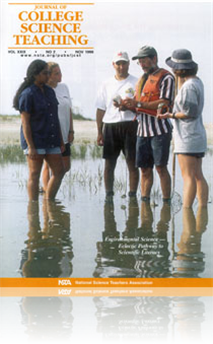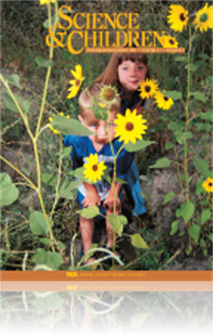All Resources
Journal Article
Classroom experiments are often designed for convenience, ignoring fundamental scientific processes. Even “hands-on” experiences seldom allow the student to define the problem or design the experiment. The example outlined here incorporates the e...
Journal Article
Scope on the Skies: The sky is falling
This column focuses on astronomy throughout the year. In this issue, learn about the special events occurring in the months of November and December....
Journal Article
Making Environmentally Friendly Cleaners
The emphasis on science education involves students "doing science" with hands-on and minds-on activities. In this article, students do science by making, testing, and comparing the effectiveness, cost efficiency, and safety of environmentally friend...
Journal Article
Teaching Teachers: Day of Science
"Day of Science" provided students an opportunity to sample various hands-on activities and also provided superb learning and practice opportunities for visiting preservice teachers. This article offers information on how the project came about and h...
Journal Article
When John Dewey’s name appears somewhere, many people imagine a librarian inventing an organizing system for shelving library books, but this is a different Dewey. Here the author is talking about John Dewey (1859–1952), the educator whose ideas ...
Journal Article
Favorite Demonstration: The Laporte Selection Rule in Electronic Absorption Spectroscopy
The Laporte selection rule states that electronic transitions between two gerade (g) states are forbidden; electronic transitions between two ungerade (u) states are forbidden; and electronic transitions between a gerade state and an ungerade are all...
Journal Article
The best way for students to discover how DNA sequences confirm descent with modification is to let them analyze data from the public sequence databases themselves. But first they must understand the significance of the sequences, and of variations i...
Journal Article
This is an exciting unit on levers that culminates with a student lever launch contest that takes them to Mars. The student whose probe lands closest to the center of Mars is awarded a medal and a small token of appreciation. Students and their famil...




